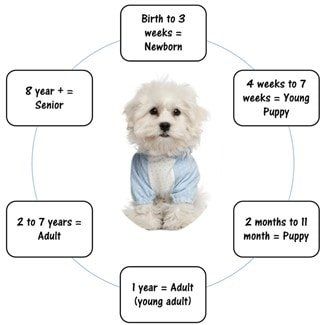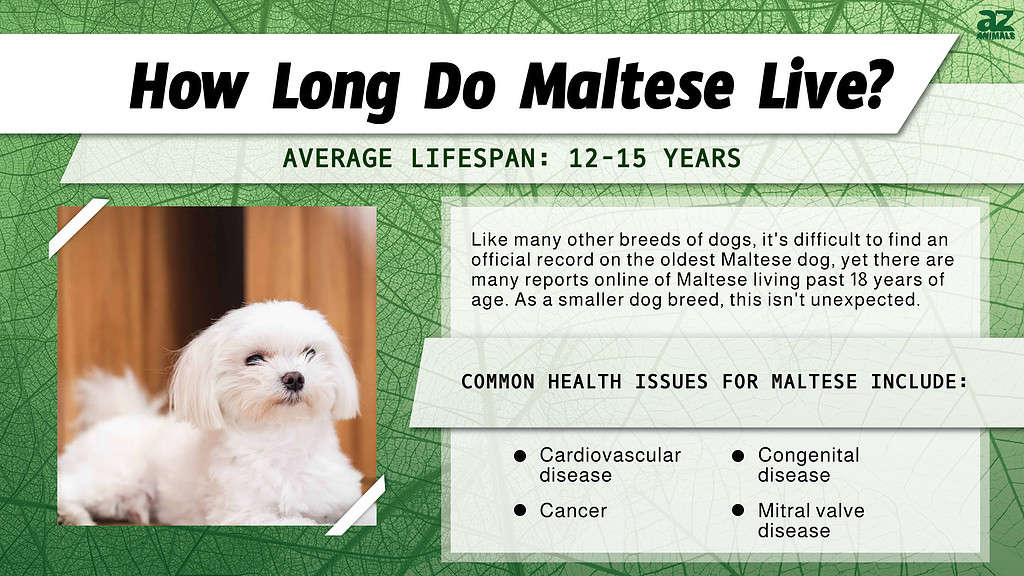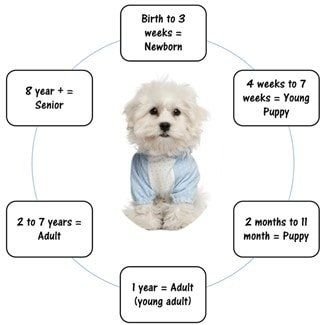Have you ever wondered when a Maltese dog reaches adulthood? Well, it might surprise you to learn that Maltese dogs have a unique way of defining their adulthood. Unlike other breeds, it’s not just about reaching a certain age or size. So, what determines when a Maltese becomes an adult? Let’s find out.
The transition into adulthood for a Maltese is typically not solely based on age but also on their physical and emotional development. On average, it takes around 1 to 2 years for a Maltese to fully mature. However, it’s important to consider individual differences as some Maltese dogs may mature earlier or later. Factors such as genetics, upbringing, and nutrition play a significant role in their development. Observing their behavior, body structure, and reproductive capability can give us some clues about their adulthood. By providing proper care, nutrition, and training, we can help ensure that our beloved Maltese companions reach their full potential as healthy and happy adults.
Ever wondered when a Maltese becomes an adult? While different sources may have varying opinions, a Maltese typically reaches adulthood between the ages of 10 months to 1 year. During this time, they will have reached their full size and weight. However, it’s important to note that maturity levels can vary among individual dogs. Keep in mind that proper nutrition, exercise, and socialization are key factors in ensuring your Maltese grows up healthy and happy.

When Does a Maltese Become an Adult?
A Maltese dog is a small, adorable breed known for its playful nature and beautiful white coat. If you have a Maltese puppy, you may be wondering when your furry friend will transition into adulthood. Understanding the milestones and developmental stages of a Maltese can help you provide the proper care and training for your pet. In this article, we will explore the timeline of a Maltese’s journey to adulthood.
1. Birth to 3 Months: The Early Stage of Life
From birth to around 3 months of age, Maltese puppies are in their early stage of life. During this time, they rely heavily on their mother for nourishment, warmth, and socialization. Their eyes and ears gradually open, allowing them to experience the world around them. Puppies begin to develop their senses and coordination, and they start exploring their surroundings. They also learn critical social skills by interacting with their littermates and mother.
As a responsible owner, it is important to provide a safe and comfortable environment for your Maltese puppy during this stage. Make sure they have a warm and cozy spot to sleep, access to clean water and a nutritious diet, and plenty of opportunities for mental and physical stimulation. Consider introducing your puppy to gentle handling and basic obedience training to build a strong foundation for their future development.
It is worth noting that Maltese puppies are extremely tiny and delicate during this stage. Take extra care to protect them from rough play or situations that may cause injury. Regular visits to the veterinarian are essential to monitor their growth and ensure they receive any necessary vaccinations and preventive care.
2. 3 to 6 Months: Adolescence Begins
Between 3 and 6 months of age, Maltese puppies enter the stage of adolescence. This is a period of rapid growth and development, both physically and mentally. You will start to notice your puppy’s teeth changing as they lose their baby teeth and their adult teeth come in. It is common for puppies to experience discomfort during this teething process, so providing appropriate chew toys can help alleviate their discomfort and prevent them from chewing on furniture or other undesirable objects.
During adolescence, your Maltese may exhibit more independence and test their boundaries. This is the time when their personality starts to emerge, and you may notice specific traits or behaviors that are unique to your dog. Proper socialization is crucial during this stage to ensure your Maltese becomes well-rounded and adaptable to different environments and situations.
Continue with consistent training, reinforcement, and positive reinforcement to shape their behavior and reinforce good habits. It is important to be patient and understanding during this stage, as your Maltese may experience some behavioral challenges. Remember to provide plenty of mental and physical exercise to help keep your puppy happy and engaged.
3. 6 to 12 Months: Young Adulthood
At around 6 months of age, your Maltese puppy will enter young adulthood. By this time, they will have reached their full height and most of their physical development will be complete. However, it is important to note that the Maltese breed generally takes longer to mature mentally and emotionally compared to larger breeds.
During young adulthood, you will notice your Maltese becoming more settled and self-assured. They will continue to refine their behavior and obedience skills. This is a great time to engage in advanced training and activities that stimulate their intelligence, such as agility or obedience competitions. Providing mental challenges and interactive toys can help keep their mind sharp and prevent boredom.
It is crucial to monitor your Maltese’s diet during this stage, as their nutritional needs may change. Consult with your veterinarian to ensure you are feeding them a balanced diet that supports their growth and maintains their overall health. Regular exercise and grooming are also important aspects of caring for your adult Maltese.
Benefits of Understanding Your Maltese’s Growth and Development
Understanding the various stages of a Maltese’s growth and development allows you to provide proper care, training, and socialization. By being aware of the specific needs and milestones in each stage, you can create an environment that promotes their overall well-being and happiness. Additionally, it helps you anticipate and address any challenges or behavioral issues that may arise during their journey to adulthood. With this knowledge, you can ensure a strong and lifelong bond with your Maltese companion.
Key Tips for Raising a Maltese Puppy into a Well-Adjusted Adult
1. Start training and socialization early: Begin training your Maltese puppy as soon as possible and expose them to a variety of people, animals, and environments to ensure they grow up to be well-adjusted adults.
2. Establish a routine: Dogs thrive on routine, so provide a consistent schedule for feeding, exercise, and training. This will help your Maltese feel secure and prevent behavioral issues.
3. Keep them mentally stimulated: Maltese dogs are intelligent and need mental stimulation to prevent boredom. Incorporate puzzle toys, interactive games, and training sessions into their daily routine.
4. Practice positive reinforcement: Reward your Maltese with praise, treats, and affection when they exhibit desired behaviors. Positive reinforcement is highly effective and helps build a strong bond between you and your dog.
5. Provide regular exercise: Although Maltese dogs are small, they still require daily exercise to keep them physically fit. Engage in activities such as walks, play sessions, or indoor games to meet their exercise needs.
6. Maintain regular veterinary check-ups: Regular visits to the veterinarian are essential to monitor your Maltese’s health and catch any potential issues early on. Stay up-to-date on vaccinations, preventive care, and parasite control to keep your dog healthy.
Common Questions About Maltese Development
1. How long does it take for a Maltese puppy to grow up?
A Maltese puppy typically takes about 12-14 months to reach full physical and mental maturity.
2. When will my Maltese stop teething?
Most Maltese puppies finish teething by the age of 6-8 months when their adult teeth have fully grown in.
3. What are some common health issues in adult Maltese?
Some common health issues in adult Maltese include dental problems, patellar luxation, eye conditions, and allergies. Regular veterinary care and proper dental hygiene can help prevent or manage these issues.
4. Can I spay or neuter my Maltese before they reach adulthood?
Spaying or neutering is typically performed around 6 months of age. Consult with your veterinarian to determine the best age for this procedure based on your Maltese’s individual health and development.
Key Takeaways: When does a Maltese become an adult?
- Maltese dogs typically reach adulthood at around 12 to 15 months of age.
- Physical and behavioral changes can indicate when a Maltese is becoming an adult.
- Maintaining proper nutrition and providing regular exercise are essential for a Maltese’s growth and development.
- Spaying or neutering a Maltese can impact their physical and emotional maturity.
- Consulting with a veterinarian can help determine when a Maltese is considered an adult.
Frequently Asked Questions
Welcome to our Frequently Asked Questions section about Maltese dogs and their adulthood. Here, you’ll find answers to common questions regarding when a Maltese becomes an adult. If you have any concerns or queries about your Maltese’s growth and development, you’ve come to the right place!
Q: What is the general age range when a Maltese becomes an adult?
A: On average, Maltese dogs reach adulthood between the ages of 12 and 15 months. However, keep in mind that individual dogs may vary. Factors such as genetics, nutrition, and overall health can influence the timing of maturity. It’s essential to monitor your Maltese’s growth and consult with your veterinarian for more accurate guidance.
In the first few months, a Maltese puppy experiences rapid growth and development. By around 12 months, they have fully transitioned from puppyhood to adulthood, both physically and mentally.
Q: How can I tell if my Maltese has reached adulthood?
A: There are a few ways to determine if your Maltese is an adult. One of the most obvious signs is physical appearance. When fully grown, a Maltese will reach their adult height and weight, usually around 8 to 10 inches in height and weighing between 4 and 7 pounds.
Behaviorally, adult Maltese dogs tend to have a more settled temperament compared to their puppy counterparts. They may exhibit greater independence, have established potty training routines, and be calmer overall. It’s important to remember that every dog is unique, so the transition to adulthood can vary.
Q: Can an early spay or neuter procedure affect when a Maltese becomes an adult?
A: Yes, early spaying or neutering of a Maltese can potentially impact their timeline for reaching adulthood. When dogs are spayed or neutered at a young age, typically before six months old, it can delay certain aspects of their physical and sexual development. This delay may result in a slightly later period of reaching full adulthood.
If you have concerns regarding the timing of your Maltese’s adulthood due to an early spay or neuter procedure, it’s best to consult with your veterinarian. They can provide specific guidance based on your dog’s individual circumstances.
Q: Is there anything I should do differently when my Maltese becomes an adult?
A: As your Maltese transitions into adulthood, there are a few adjustments you can make to their care routine. Firstly, you may need to switch from puppy food to adult dog food formulated specifically for small breeds. Adult dog food provides the necessary nutrients to support their mature body and energy levels.
In addition, regular exercise and mental stimulation are vital for adult Maltese dogs to keep them healthy and happy. An appropriate exercise routine, along with continued socialization, can help prevent behavioral issues and maintain their overall well-being.
Q: How long does a Maltese typically live after becoming an adult?
A: The lifespan of a Maltese dog can vary, but on average, they live for around 12 to 15 years. Some Maltese may live even longer with proper care, nutrition, and regular veterinary check-ups.
To ensure your Maltese lives a long and healthy life, it’s crucial to provide them with a balanced diet, regular exercise, and routine vet care. Maintaining their dental health, grooming, and monitoring for any potential health concerns are essential in maximizing their lifespan.

7 Reasons Why You Should Never Own Maltese Dogs
Summary
So, when does a Maltese become an adult? Well, it’s not based on age, but rather on maturity. Just like humans, Maltese dogs develop at their own pace. However, some general signs indicate when they are transitioning into adulthood.
One important indicator is when they stop growing in height and weight, usually around one year old. Another clue is when their teeth fully develop at around six months old. Additionally, when a Maltese becomes more independent, confident, and starts showing their true personality, it suggests they are becoming an adult. Remember, each pup is unique, so give them time to grow into their paws and enjoy the journey together!
